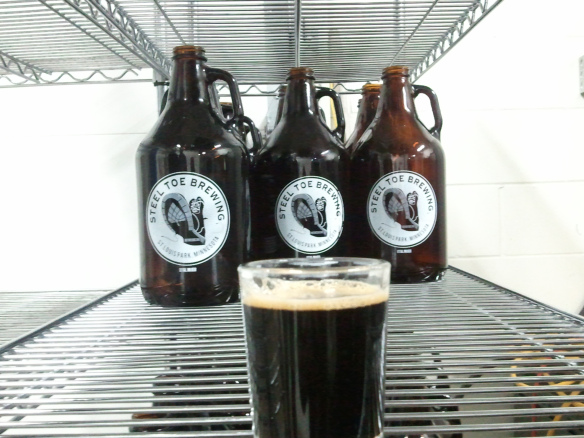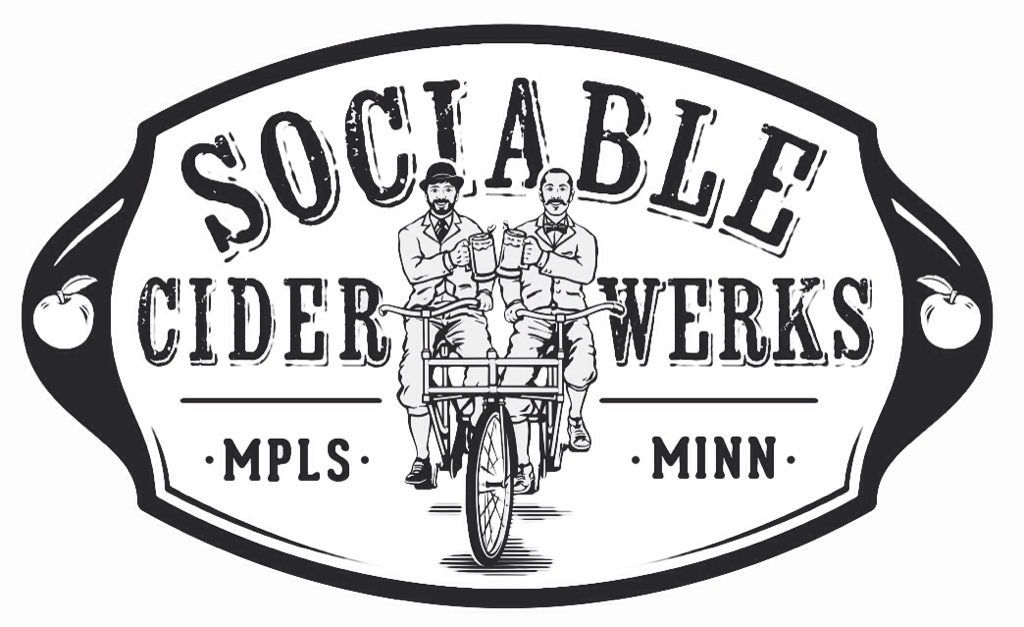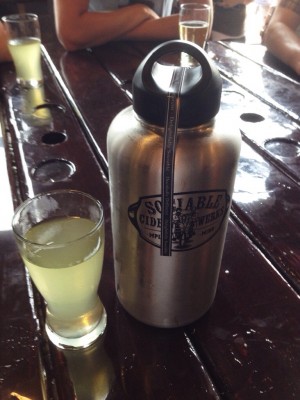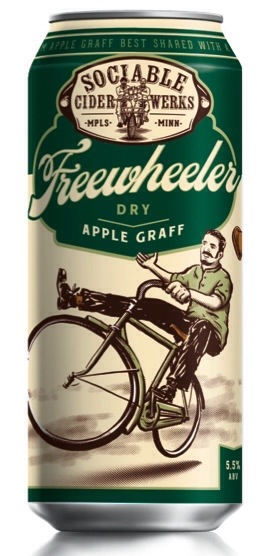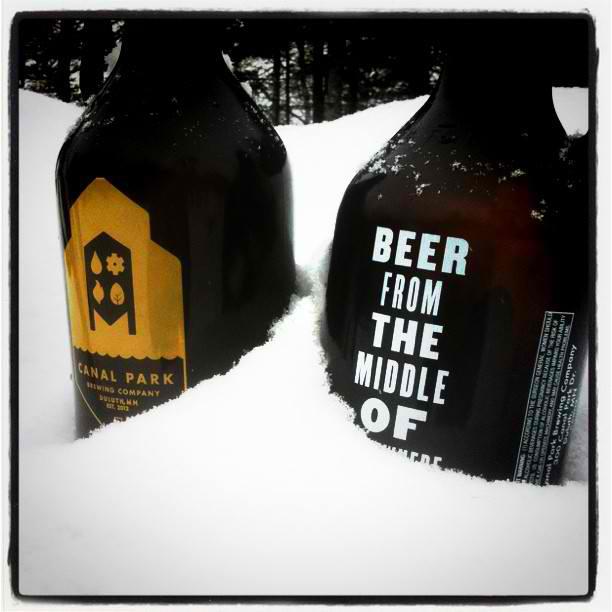 How many growlers do you own? Empty ones, I mean, gathering dust and taking up a sad amount of space in your cellar or kitchen? I own about ten, and I have even given some away for silent auctions, or to close friends headed up north, in a take-a-penny, leave-a-penny sort of exchange. I have more growlers than I know what to do with, and I am willing to bet that many of my Minnesotan readers do, too.
How many growlers do you own? Empty ones, I mean, gathering dust and taking up a sad amount of space in your cellar or kitchen? I own about ten, and I have even given some away for silent auctions, or to close friends headed up north, in a take-a-penny, leave-a-penny sort of exchange. I have more growlers than I know what to do with, and I am willing to bet that many of my Minnesotan readers do, too.
My friend Ian Campbell recently posed a question to me, a clear result of this major pet peeve.
“Why won’t our local breweries fill growlers that aren’t their own?” He went on to describe brining Minnesota growlers to sates like Colorado with no questions asked and an easy, cheap fill. Some breweries are quite vocal about this practice, too, such as Wisconsin’s Rush River who claim to fill milk jugs if asked.

“But in Minnesota, where we supposedly have this exciting beer scene where all the breweries see themselves as a ‘community’ instead of competitors, I have yet to hear of a single brewery that will fill a growler other than their own.”
It is a great question, and a timely one, too.
 Recent lesiglation pushed through by House Rep Mark Anderson with advisement from Minnesota Beer Activists’ Andrew Schmitt served to clarify vague language about growlers, making it clear to Minnesota breweries that growler-sharing is completely legal. But in fact, it was never illegal: “Growler refilling has always been legal as long as you follow the state and fed requirements,” Andrew explains. “Of course, special interests try to make it as hard as possible. Labels, seals, etc. One of the reasons [House Representative Mark Anderson’s] bill was written was to clarify the regulations. Brewers were being told they could be accused of bottle/label tampering if they filled other’s growlers.”
Recent lesiglation pushed through by House Rep Mark Anderson with advisement from Minnesota Beer Activists’ Andrew Schmitt served to clarify vague language about growlers, making it clear to Minnesota breweries that growler-sharing is completely legal. But in fact, it was never illegal: “Growler refilling has always been legal as long as you follow the state and fed requirements,” Andrew explains. “Of course, special interests try to make it as hard as possible. Labels, seals, etc. One of the reasons [House Representative Mark Anderson’s] bill was written was to clarify the regulations. Brewers were being told they could be accused of bottle/label tampering if they filled other’s growlers.”
Other misconceptions exist, too, such as the perception that refilling the bottles is against health code, or that it remains illegal in another roundabout way.
“I would think this would be a no-brainer for breweries…it would increase the amount of beer they can sell, and money they can make, and expand access to their product if they would just fill whatever vessel they were handed. And by law, they can. They simply choose not to. Which just feels like one more arbitrary roadblock in a distribution system already filled with plenty of arbitrary roadblocks to good beer.” Ian is not alone in this thinking, to be sure, but breweries have delineated a multitude of reasons for not filling other breweries’ proprietary growlers.
Ian hit the streets (well, mostly the phone and interwebs) to do a bit of research. While not a comprehensive list, I’m very impressed with the amount of information he unearthed.
Northbound Brewpub was the first phone call. “No” was the immediate answer to our sharing question, citing the issue of brand recognition and quality, an understandable roadblock. “We want all our beer coming out of growlers with our name on it.” Third Street Brewhouse had a similar response.
The brand-new LynLake is not yet filling growlers due to taproom demand and volume. Justin explained that growler fills will begin in a “couple months”, but they plan to pre-fill using proprietary vessels because “it’s easier for us, and it’d be difficult trying to take the growler being traded in and get it back to brewery where it’s from.” Dangerous Man follows the same model, pre-filling all growlers in advance. Hilari also told Ian that cleanliness would be a concern, as did a representative of Town Hall.
On the St. Paul end of things, Tin Whiskers cited “health code issues” for their being against the practice, but indicated this may change in the future. On the other hand, Urban Growler described the practice of “pre-filling them fresh from the fermenter” in hopes that the beer stays fresher longer, and out of convenience. Similarly, Steel Toe fills their growlers on a counterpressure bottling line, according to Brandon, which keeps the beer from getting oxidized too quickly. They indicated considering stainless steel growler fills in the future.

Heading north, Bent Paddle cited not having stickers with compliant labeling. No word on whether this will change. Fitger’s is another no, but in an interesting twist, they are willing to take the growler you have and credit you the deposit. I appreciate that! Interestingly, Lake Superior feels uncomfortable with the law despite Representative Mark Anderson’s clarification. Dan explained that they are “waiting for clarity on the finer points”. However, they do support the practice and are themselves annoyed by obligatory growler-collecting.
In greater Minnesota it’s generally a no-go. This is especially vexatious considering these are the growlers from that road trip that won’t be re-used for years, if ever. Bemidji Brewing Co uses the bottling line for filling, and Jack Pine Brewery of Baxter is uneasy with the law, despite telling MNBA they support sharing. Brau Brothers was another to cite sanitation of the container and the desire to have their logo displyed. Ely’s Boathouse Brewpub, on the other hand, is eagerly awaiting stickers compliant with Minnesota law.

Despite these ligitimate concerns, a handful of Minnesota breweries support or even encourage growler-sharing.
Harriet Brewing will enthusiastically fill any clean growler. Indeed Brewing agrees, with a huge emphasis on clean, explains Tom, laughing. “We have EXACTING standards for cleanliness!” Fair State would love to fill your clean growler or clean it for you, for a fee. It must be a “classic” growler; they cannot fill any other type of container because they have only been approved to sell that type. Fair State was the only brewery we spoke with to make this distinction.
Evidently, brewery owners don’t think we know how to do dishes! Of course, I’m kidding, but cleanliness and brand recognition were the most commonly cited issues, even from breweries who take ‘em and fill ‘em from all sides. And of course consumers can appreciate this point. What happens when a nucleation site at the bottom of the container sends Town Hall beer out of a Dangerous Man growler like a geyser? Everyone ends up wet and confused.
At the same time, the convenience factor and potential for less environmental impact cause most drinkers to highly favor sharing. Consumers who purchase growlers care about the product and they want fresh beer. Forcing visitors to purchase and store growlers simply makes potential customers less willing to do so.
The fine print of common growler use, legally speaking, requires proper labeling. Additionally, the growler must be filled at the time of sale, otherwise it is considered bottling, which explains some of the roadblocks cited during our informal poll. Perhaps this requirement is also a hurdle for some busy establishments that feel unable to keep up in real time. “A brewer may, but is not required to, refill any growler with malt liquor for off-sale at the request of a customer. A brewer refilling a growler must do so at its licensed premises and the growler must be filled at the tap at the time of sale.” Alcohol and Tobacco Tax and Trade Bureau (abrreviated TTB).
In short, any brewery could slap on a sticker wth the required information: Brewer name or trade name / Place of production – the place of production is the city, and, if necessary for identification, the state / Net contents – show net contents as ½ gallon. You may use “64 ounces” in addition to but not in place of “½ gallon.” / Government warning label. (paraphrased from TTB)
There are huge advantages for breweries that share growlers, the primary one being cost, not to mention consumer satisfaction. Growlers are often in short supply, and many breweries have run out from time to time. This is precisely why Fair State recently encouraged customers to tote their own glassware.
Yet, the barriers remain, so much so that despite the legal status of the practice, it is unlikely that my growler collection will shrink anytime soon.
Huge thanks to Ian Campbell for his great question and dilligent research. Thank you to Andrew Schmitt (well for many things, but especially) for the great background info and resources. And thanks to the local breweries for their willingness to enlighten us on the issue. Keep up the great work!
Further Reading: Federal Regulations / State Statutes / MN Beer Activists work with Rep Anderson

